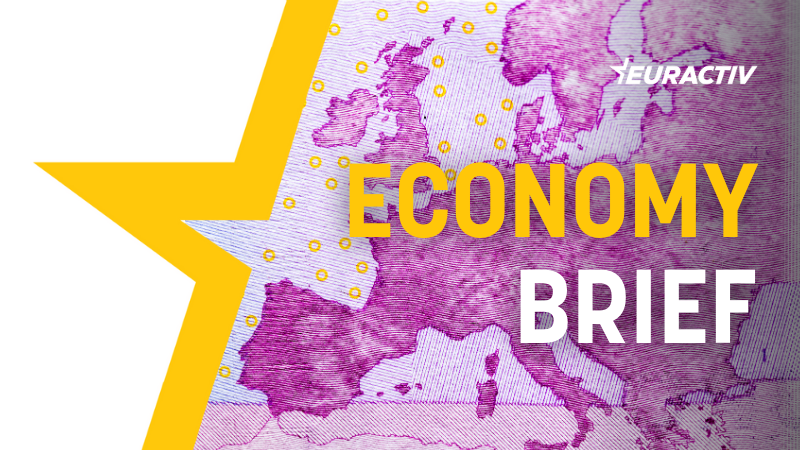After the surprise failure of the year-long negotiations between the EU and Australia for a free-trade agreement, representatives of Germany’s export-oriented industries strongly criticised the disproportionate influence of agricultural interests on trade deals.
Last week, the year-long negotiations between the EU and Australia over a trade deal could surprisingly not be concluded, over disagreements on access to EU markets for Australian sheep meat and beef producers, a measure opposed by countries like France and Ireland.
Export-oriented industries fumed at the deal’s failure, which could have opened market access for European sectors like the car and machinery industries.
The negotiations failed over a “ridiculous issue”, Karl Haeusgen, president of German machinery producers association VDMA told journalists on Tuesday (7 November).
“Of course, you could blame the Australians for that, [because] for them, it is also ridiculous,” he continued. “But a little more sovereignty on the part of the EU and then this at least temporary failure of the negotiations could easily have been avoided,” he added.
For the machinery industry association, this hints at a general problem in trade policy, namely too large influence by agricultural interests on trade deals. Its influence is “completely disproportionate to the economic importance of agriculture in Europe,” Haeusgen said.
While agriculture accounts for only 1.7% of the EU’s GDP, farmers traditionally have good links to centre-right parties who see rural communities as one of their key constituents.
However, this is not only a European phenomenon. “Worldwide, the problem of agriculture is one that always severely hampers free trade agreements in terms of time, scope, nature and efficiency,” VDMA’s executive director Thilo Brodtmann added.

EU, Australia fail to agree on trade deal
Meeting at the margins of the G7 meeting in Osaka on Sunday (29 October), EU and Australian trade representatives failed to conclude negotiations on a free trade agreement due to persistent disagreements on agricultural market access.
“Unfortunately, we have not been …
Move away from comprehensive trade deals
Speaking at a conference organised by the VDMA, German Economy Minister Robert Habeck (Greens) acknowledged agricultural influence as a factor of disturbance for concluding trade deals.
He was “surprised” by the failure of the negotiations with Australia, as all his focus had been on the parallel trade negotiations with the Southern American Mercosur bloc (Brazil, Argentina, Uruguay, Paraguay), he said.
“It failed because of beef and sheep meat,” Habeck said. “I do not understand it. If kiwis can be exported, then it must also be possible with sheep and beef,” he added.
“I make no secret of the fact that these Comprehensive Agreements, meaning doing everything together, mechanical engineering and services and agriculture, only ever cause problems, and in fact it is always the agricultural sectors which causes problems,” he added.
If this continues to be a problem, “we have to conclude non-comprehensive agreements and quickly reach an agreement on the machinery and industrial goods sectors,” Habeck said.
While Habeck’s Green party has been traditionally sceptical of free trade agreements, he is currently under pressure to bring Germany’s economy back on track as it will be the only major global economy which is expected to shrink this year.
In an industrial strategy presented in October, Habeck named the conclusion of trade deals as one of his key measures to improve conditions for the traditionally export-strong German industries.

Bad omen for the EU-Mercosur deal?
Asked whether the failure of the EU-Australia deal could signal a chance for the EU-Mercosur agreement to fail over similar problems, Haeusgen said he doesn’t think so.
“They’ll get their act together at some point,” he said on the ongoing negotiations over a side text to the negotiated agreement, which is meant to ensure that agricultural exports from the Mercosur bloc do not cause deforestation.
In June, Brazilian president Luiz Inácio Lula da Silva blamed a protectionist stance by French President Emmanuel Macron for the difficulties in finalising the deal.
“France is very tough on defending its agricultural interests,” Lula said at the time, after Macron had called for so-called “mirror clauses” which would see European environmental and food standards enforced on imports as well as on domestic production.
While negotiations between the two blocs are ongoing, “at the moment, Mercosur is blocked, to a certain extent, because the South American countries don’t want it,” Habeck said on Tuesday.
“We have to make them realise that it is to their advantage to conclude this agreement now,” he added.
Haeusgen, for his part, blamed the EU’s efforts to fight deforestation as “missionary zeal on some non-trade issues”, which in his view had offended the Mercosur negotiators and thus complicated negotiations.
If the EU “had been a little more conciliatory, we wouldn’t have this problem today,” he added.
[Edited by János Allenbach-Ammann/Nathalie Weatherald]

Germany wants to persuade France over merits of EU-Mercosur deal
The German government wants to convince a hesitant France that the merits of the EU-Mercosur free trade agreement – currently being discussed at the EU-CELAC summit – are worthwhile, Franziska Brantner, the parliamentary state secretary in charge of trade at the Economy Ministry, told EURACTIV in an interview.
Read more with EURACTIV








.png)
 1 year ago
71
1 year ago
71



 English (US)
English (US)